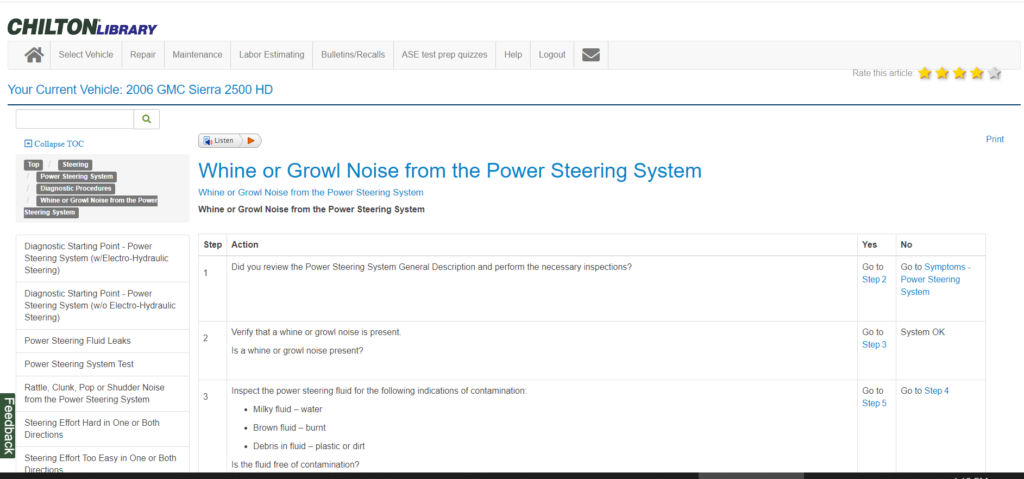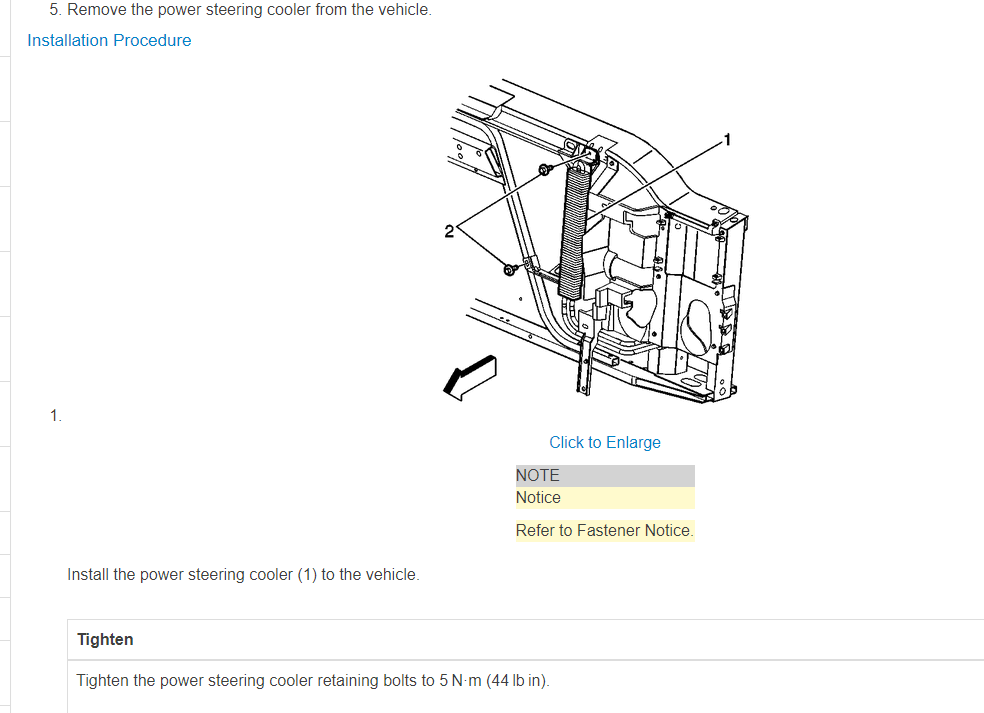| By James Ormsbee, Manager, Chilton |
Like most of America, I’ve been at home. For weeks now. I only head out when I need to.
So last week, I had to run a few errands. When I started my truck—a 2006 GMC Sierra—an intolerable whine developed from under the hood, which only grew louder when the truck accelerated.
I had a general sense of what might be wrong and tried to pinpoint the source of the noise. But without proper diagnostic tools, I decided to bring it to a local service center and let them tackle the job. I did a little diagnostic research on ChiltonLibrary, and shared as many symptoms and possible causes as I could over the phone. The service advisor took down my information and instructed me to leave the truck in front of the service bays and drop my keys in a bucket. Easy enough.

Soon after, I received a callback with their diagnosis and estimate. The power-steering coolant line was leaking. The work would take a couple of hours, but they could have it ready that afternoon, assuring me they would also sanitize all the surfaces they touched before returning the truck.

From discussing the problem to scheduling the repair to final payment, the entire process was managed over the phone. Easy. Efficient. Back on the road.
If your car needs service, consider the health of your technician and sanitize the touch points of your car before you leave it for service.
Tips for sanitizing your car’s interior:
- Alcohol
solutions that contain at least 70 percent alcohol are effective against the
coronavirus, according to the Centers for Disease Control and Prevention. Most
interior surfaces of a vehicle can be cleaned with isopropyl alcohol. - Avoid bleach and hydrogen peroxide products.
While they can both kill the coronavirus on surfaces, they’ll likely damage
your car’s upholstery. And don’t use ammonia-based cleaners on car touch
screens, as they can damage anti-glare and anti-fingerprint coatings. - Simple
Ivory soap and water is safe and effective for most car interiors—especially
fabrics and older leather that may have begun to crack. Be careful not to scrub
too hard or saturate your car’s fabric. - Remember
to thoroughly wash your own hands before and after driving. It’s still one of
the best defenses against spreading COVID-19.
For more information about the safe operation of your car or truck, please visit ChiltonLibrary.
Stay well and please drive safely!

